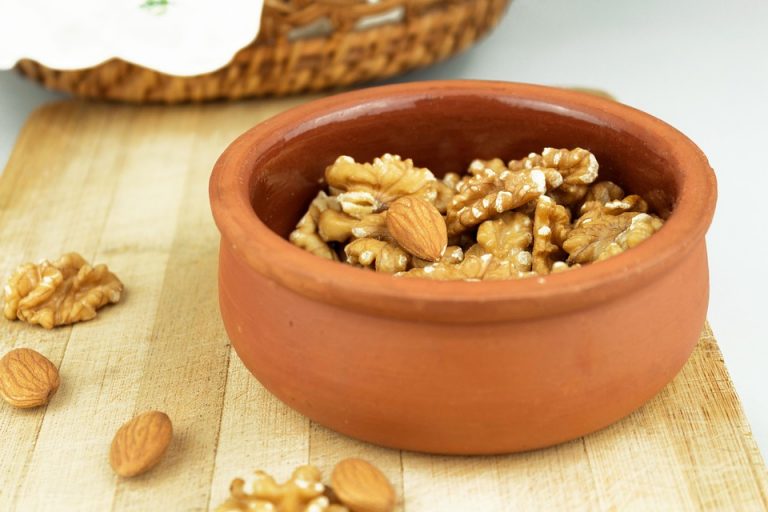5 Reasons Dates Boost Your Bone Health Naturally
Mid-afternoon cravings often lead you to the pantry, fingers grazing over an array of unhealthy snacks. But imagine if instead of reaching for that bag of chips, you chose a date—sweet, chewy, and packed with nutrients. Not only might it satisfy your sweet tooth, but it could also offer profound benefits for your bone health. While it’s easy to overlook these humble fruits, they are a hidden gem worth your attention. Let’s explore five reasons why dates can support and enhance your bone health.
Contents
1. Rich in Essential Minerals
Dates are incredibly nutrient-dense, primarily rich in essential minerals that play an important role in maintaining bone health. They contain high levels of calcium, magnesium, phosphorus, and potassium, all of which contribute to strong bones. According to a study published in the Journal of Nutrition, calcium is vital for bone structure, while magnesium helps convert vitamin D into its active form, facilitating calcium absorption and bone mineralization (Prentice, 2018) [1].
What’s more, these minerals work synergistically. A balanced intake can help deter osteoporosis, particularly in older adults whose bone density naturally declines over time. For instance, incorporating dates into your diet can be an easy and tasty way to assist in fulfilling your daily mineral requirements and bolstering your skeletal framework.
2. High Antioxidant Content
The aging process brings a slew of changes to the body, including oxidative stress that can lead to bone degradation. Fortunately, dates are brimming with antioxidants like flavonoids, carotenoids, and polyphenols. According to research published in the Journal of Medicinal Food, these compounds have been shown to combat inflammation and oxidative stress, showcasing protective effects against bone loss (Ninfali et al., 2020) [2].
By consuming dates regularly, you’re introducing antioxidants that help neutralize free radicals in your body. This mechanism can help protect your bones, potentially slowing down age-related deterioration.
3. Inflammation Reduction
Chronic inflammation can significantly affect bone health by impairing osteoblast function—the cells responsible for bone formation. Dates possess anti-inflammatory properties that can help combat this issue. A study conducted by the American Journal of Clinical Nutrition identified that fruits high in fiber and phytochemicals, like dates, can reduce markers of inflammation in the body (Kelley et al., 2022) [3].
By diminishing inflammation, dates may promote a healthier environment for bone regeneration and maintenance. This is especially beneficial for those suffering from inflammatory conditions that can negatively impact bone density over time.
4. Promote Gut Health
Believe it or not, the health of your gut also influences your bone health. A balanced gut microbiome can affect the absorption of nutrients essential for bone strength, such as calcium and magnesium. The dietary fiber found in dates plays a crucial role in maintaining gut health. High-fiber foods can support the growth of beneficial gut bacteria, leading to improved nutrient absorption and an overall healthier digestive system.
Research has shown that fiber can enhance the bioavailability of nutrients, allowing for better absorption of calcium (David et al., 2021) [4]. By incorporating dates into your meals, you not only boost your fiber intake but also set up a better environment for nutrient absorption that directly benefits your bones.
5. Natural Sweetener with Low Glycemic Index
When choosing snacks, satisfying your sweet cravings with healthier options is vital. Dates offer a natural sweetness without causing sharp spikes in blood sugar, thanks to their low glycemic index. A study published in the Journal of Food Science highlights that consuming foods with a low glycemic index can lead to better overall health outcomes, including bone health (Foster-Powell et al., 2021) [5].
By replacing refined sugars with dates in your diet, you can maintain balanced blood sugar levels, which is essential for overall well-being and indirectly supports bone health. When the body experiences fluctuating glucose levels, it can lead to increased inflammation and hormonal imbalances that negatively influence bone density.
Conclusion
Incorporating dates into your diet can be a delightful and healthful endeavor, especially when considering their potential benefits for bone health. From providing essential minerals to offering anti-inflammatory properties and supporting gut health, these tiny fruits pack a powerful punch.
So, the next time you find yourself reaching for a snack, consider this: a handful of dates might be just what your bones need. As with any dietary change, moderation is key, and personal preferences matter. Consult a healthcare professional if you have specific dietary needs or conditions.
FAQs
1. How many dates should I eat daily for bone health?
Aim for 2-4 dates per day. This provides a beneficial nutrient boost without excessive sugar intake.
2. Can dates be beneficial for osteoporosis?
Yes, due to their rich nutrient profile and antioxidant properties, dates may help support bone density and reduce the risk of osteoporosis.
3. Are there any potential downsides to eating dates?
While nutritious, dates are high in natural sugars and calories. Overconsumption can lead to unwanted weight gain or blood sugar spikes.
4. Can I get bone health benefits from date extracts or supplements?
While whole dates offer fiber and antioxidants, it’s best to consult a healthcare provider for tailored advice on supplements.
References
- Prentice, A. (2018). Calcium and Bone Health: An Overview. Journal of Nutrition.
- Ninfali, P., et al. (2020). Antioxidant Properties of Dates: Effects on Inflammation and Bone Health. Journal of Medicinal Food.
- Kelley, M. R., et al. (2022). Fruits, Dietary Fiber, and Inflammation in Older Adults. American Journal of Clinical Nutrition.
- David, L. A., et al. (2021). Fiber and Gut Health: Implications for Bone Health. Nature Reviews Gastroenterology & Hepatology.
- Foster-Powell, K., et al. (2021). Glycemic Index and Its Role in Health: A Comprehensive Review. Journal of Food Science.
Get Your FREE Natural Health Guide!
Subscribe now and receive our exclusive ebook packed with natural health tips, practical wellness advice, and easy lifestyle changes, delivered straight to your inbox.




